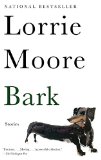Summary | Excerpt | Reviews | Beyond the book | Read-Alikes | Genres & Themes | Author Bio

Junot Díaz is the real deal. His debut collection of short stories, Drown (1996), introduced Yunior - a whip-smart, street-savvy DR (Dominican Republic) original - to American literature, and since then Díaz has never looked back. His debut novel The Brief, Wondrous Life of Oscar Wao (2007), won Díaz the Pulitzer Prize, and now the incredibly talented author is back with another collection of stories, This is How You Lose Her.
As the title implies, the unifying themes underlying these stories are of heartbreak and broken relationships. Yunior is back as the central character and, while older, he doesn't seem to be any wiser. The spirited and virile young man certainly doesn't win any brownie points for himself. He sleeps around, is unfaithful to his girlfriends, and flits around from one messed up relationship to the next. His role models - his friend Elvis, and brother Rafa - are not exactly paragons of virtue either. Elvis, who is already married, has knocked up a girl back home in the DR and secretly supports the child. Rafa, struck by cancer, tries to hold on to life by keeping the string of girlfriends steady.
While all this might be enough to turn off any reasonable reader, it is to Díaz's enormous credit that Yunior and his coterie are so human, so absolutely lovable that you forgive their misdeeds. These are not people you might run into everyday, but Díaz's expert touch makes them pop and come alive. Great literature transcends plot and gives us a peek into the human condition. That is precisely what Díaz achieves to dazzling effect. He uses these broken love stories as the medium through which he addresses weightier themes.
Every character in Díaz's books faces the perils of displacement - be it through immigration, poverty, or even mortality. In "Nilda," one of my favorites, Yunior is trying to come to terms with his brother's cancer. Looking for escape, Yunior knows there are some things in life from which you can't run away. "In this world I had a brother dying of cancer and a long dark patch of life like a mile of black ice waiting for me up ahead," he observes. Yet there is redemption. These characters are not weighed down by circumstance, but instead try their best to overcome the lousy hand fate has dealt them. This is precisely what makes Díaz's characters so appealing - their struggles might not exactly mirror ours, but their dreams to achieve a better station in life do.
Books like This is How You Lose Her renew our faith in literature. Díaz has said that his focus on Dominican culture comes partly from a recognition that his community deserves great art: "It's terrible not to see yourself reflected in the larger culture. You become a ghost." With his mesmerizing voice and incredibly human touch, Díaz has ensured that his cast of characters are forever immortalized in literature. And in doing so he has done all of us a great service.
Additional Info
For a visual tour of the events and places from This Is How You Lose Her, check out my Pinterest board at: www.pinterest.com/booksnfreshair/this-is-how-you-lose-her-by-junot-Diaz.
![]() This review was originally published in The BookBrowse Review in September 2012, and has been updated for the
September 2013 edition.
Click here to go to this issue.
This review was originally published in The BookBrowse Review in September 2012, and has been updated for the
September 2013 edition.
Click here to go to this issue.

If you liked This Is How You Lose Her, try these:

by Amanda Eyre Ward
Published 2015
A beautiful and heartrending novel about motherhood, resilience, and faith - a ripped-from-the-headlines story of two families on both sides of the American border.

by Lorrie Moore
Published 2014
These eight masterly stories reveal Lorrie Moore at her most mature and in a perfect configuration of craft, mind, and bewitched spirit.




Be careful about reading health books. You may die of a misprint.
Click Here to find out who said this, as well as discovering other famous literary quotes!
Your guide toexceptional books
BookBrowse seeks out and recommends the best in contemporary fiction and nonfiction—books that not only engage and entertain but also deepen our understanding of ourselves and the world around us.